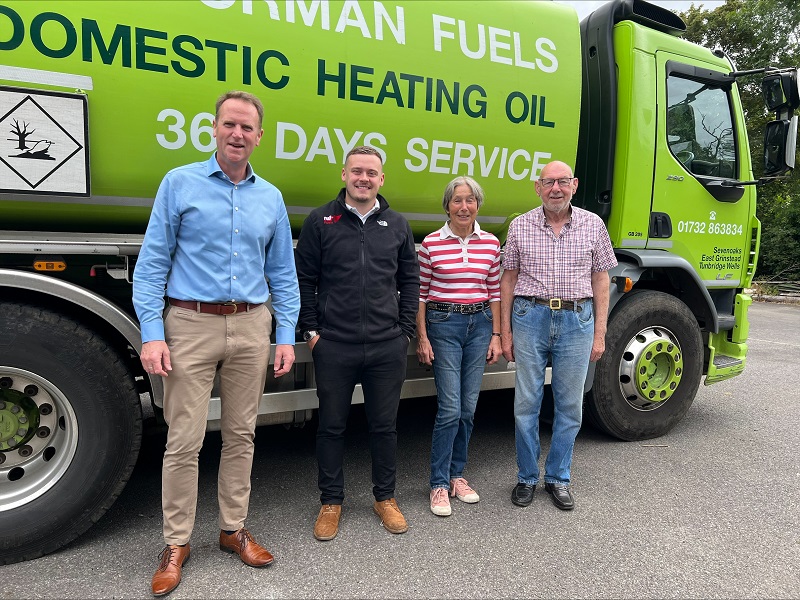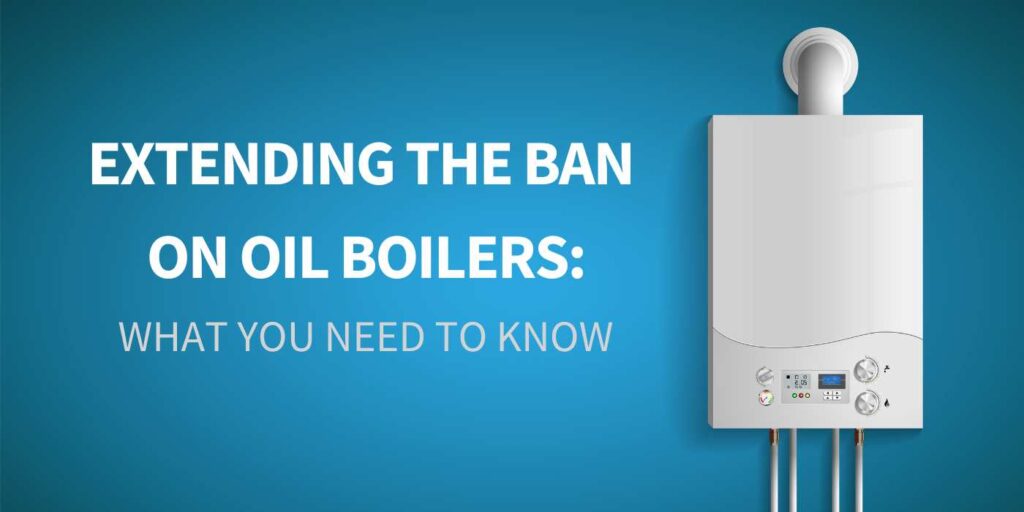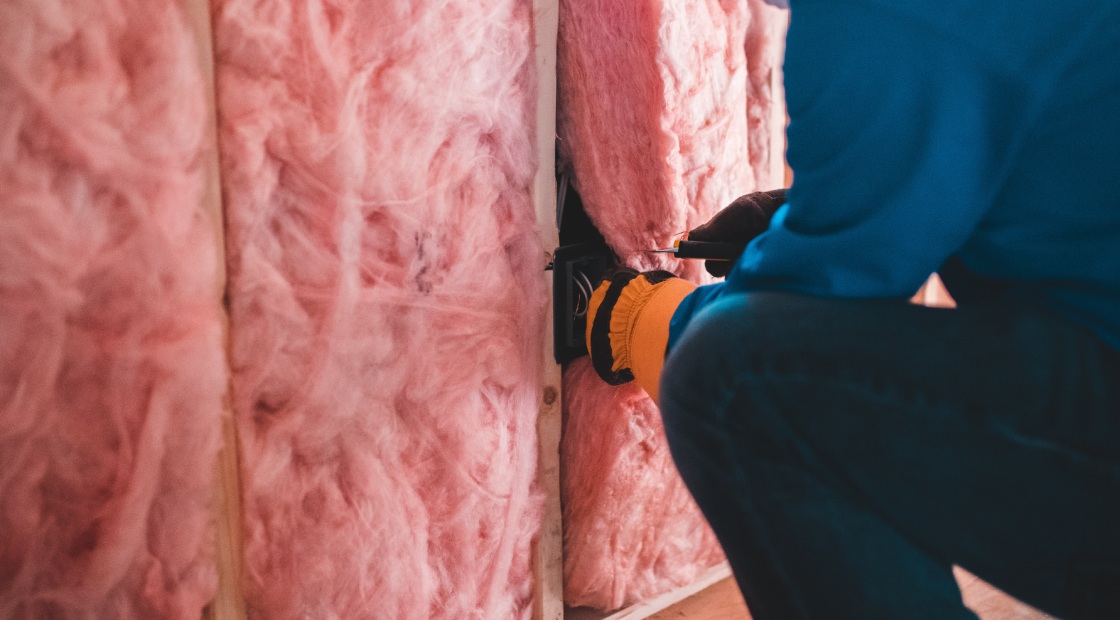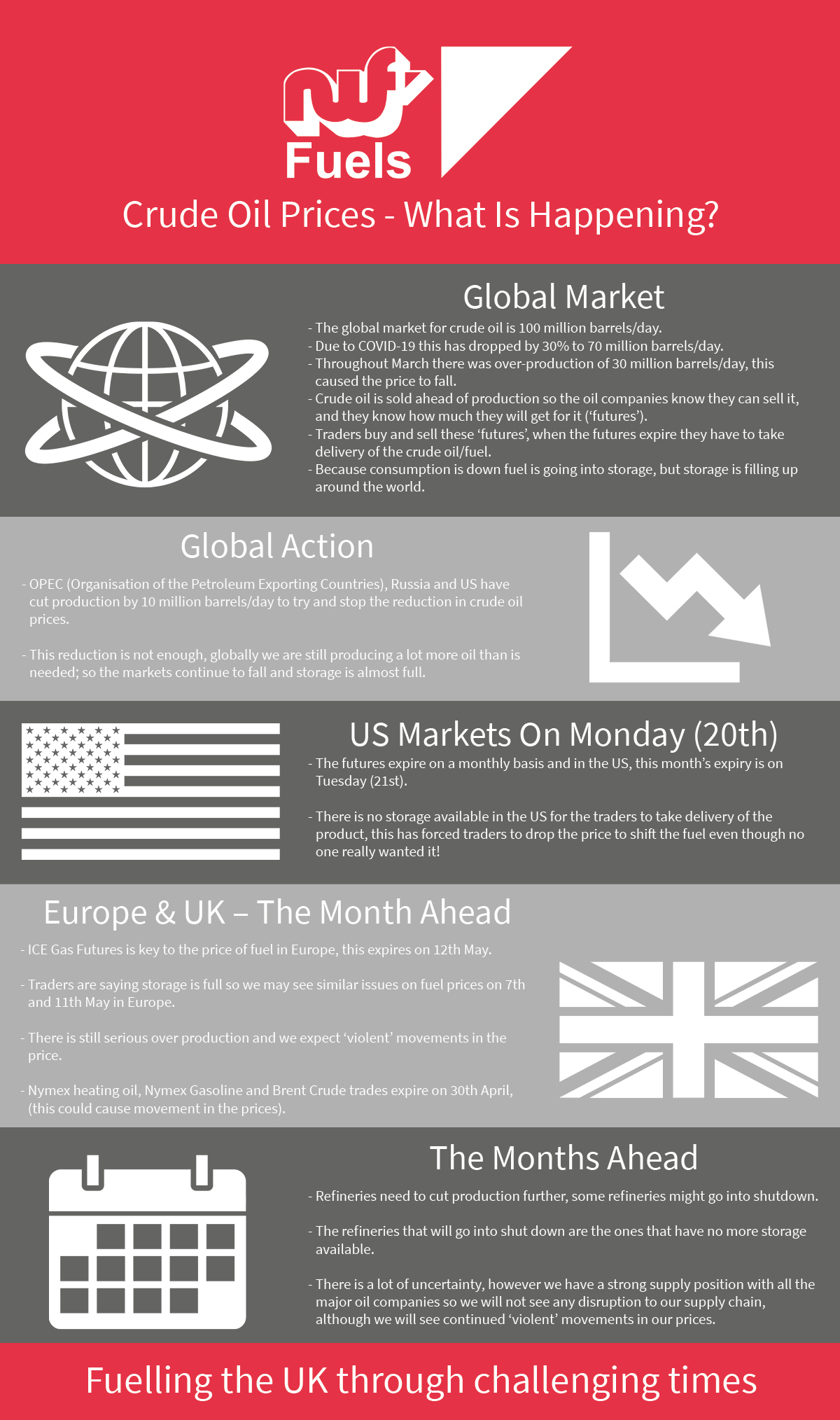Category: Uncategorised
James Pontin in Profile
Many of us will have worked with James as a colleague and Depot Manager, and many more will know James from his travels and help with acquisitions. But what does his role as a Business Integration Manager involve and how does he compare the experience of managing different depots? We caught up with James to find out..
How has your role progressed at NWF Fuels?
I have been with the business for nearly 9 years now. Having started at Kenilworth in 2015 as a sales trainee, I then moved into the Assistant Depot Manager role in 2017 before moving to manage Droitwich between 2018 and 2019. Moving back to Kenilworth as Depot Manager in 2019, I had my first experience with acquisitions after helping integrate Midland Fuel Oils into the NWF network, which was a fun and challenging experience, managing, and running two depots side by side out of one office. We successfully did this and from then on, I managed both depots until Christmas 2022.
My role has been developed due to NWF’s growth and expansion strategy. Most recently my core responsibility entails onboarding and integrating each new acquisition. From everything to codas implementation & central function liaison to customer relationship building as well as driver management. It is a role that is ever-changing, with so many facets to a depot, no day is ever the same!
Each acquisition and project poses different obstacles and hurdles, but it is always satisfying to see each depot progressing and going from strength to strength. It is also important to learn from each acquisition. How can we better onboard an acquisition next time? What can we learn from the new business and apply to NWF Fuels?

What has been your focus for 2023?
The acquisition of Sweetfuels was my first experience of seconding to a depot to help bring them into the NWF Fuels family. This involved relocating to Faringdon and helping support the team day to day throughout our busiest period to integrate the depot into our systems. The team were brilliant and couldn’t have been more helpful and supportive of the job we were doing. Nick Seabourne was then hired as Sweetfuels Depot Manager which freed me up to go back to Kenilworth where I finished the financial year.
In June I then took the role of Business Integration Manager and relocated again to Edenbridge to integrate Geoff Boorman Fuels. Again, this was another new acquisition and very different to Sweetfuels! From transitioning from Fuelsoft to Codas and manual metering systems, the challenges were unique for each depot. However, it is good to see a strong team in place and improvements and momentum being gained month on month. I have since finished the calendar year at Eveson’s Fishers Pond, assisting the depot through a period of change. Again, with every problem, there is a solution waiting to be found. I enjoy and relish the chance to dig in and help, and ultimately a sense of satisfaction at the end that it is all worth it.
What is your experience of managing different depots?
The similarity is the same with us and any other business, we all sell the same products and offer a brilliant service. You’d think there wouldn’t be a lot of differences, however, there are! Customer bases are different, Sweetfuels has a very close and tight delivery area, enabling a lot of close proximity drops and the ability to control costs with storage on site. Whereas Boorman’s area is almost four times the size and is reliant on fuel collection from the terminal on a daily basis, and as we all know this has its own challenges!
Both our recent acquisitions are quite domestic-focused, so it has been interesting to see the different approaches and listen to why customers choose to remain loyal to family-run businesses. This is something we need to capture and ensure all acquisitions and local depots hold on to and promote the service that makes these businesses successful!
Squirrel Secrets: Preparing Your Oil Heated Home For Winter
To help make your winter warmer (and more affordable) we’ve taken inspiration from the masters of resourcefulness with our Squirrel Secrets. Take a few minutes to read these four tips and the only sign you see of cold weather will be through the window while you’re at home snug (like a squirrel, not a bug!).

Restore your habitat!
As the cold weather begins squirrels will migrate to their winter home (drey) and begin restoring the twigs, moss and leaves that keep them warm. Most of us don’t have a Caribbean home to winter in so we can only recommend inspecting and restoring your heating system. Keeping your oil boiler and tank in optimal condition will help to improve your heating efficiency and reduce the risk of downtime. As we approach winter is often the ideal time to schedule an annual service by a registered heating engineer to help prepare your heating system for the cold weather.
There is also plenty that you can do without needing a professional:
- Inspect your tank for any signs of cracks, splits or severe rust
- Remove foliage from around the base of the tank (the squirrels might use this!)
- Check your oil gauges are reading correctly
- Monitor your oil levels weekly and order oil early
- Lubricate any tank locks to prevent them from locking shut

Keep an emergency cache
It always pays to have an emergency stash. Squirrels cache their food in holes near their chosen tree so they don’t have to travel too far during poor weather. Take heed from their caution and keep an oil supply to last at least 2 weeks. This also means you can order your heating oil delivery in advance with the bonus of reducing your PPL with a longer delivery window.
Scurry up and join the scheme
When squirrels get together (in a group or ‘scurry’) they look out for each other, pointing out dangers and keeping each other safe.
If you or someone in your household is vulnerable or at least 75 years young then you can help keep them cosy this winter by signing up for the free Cold Weather Priority (CWP) scheme and making your own scurry. This program prioritises heating oil deliveries to elderly customers during extreme cold or shortages.
Participation is free and all you have to do is mention that you’re eligible for the Cold Weather Priority scheme when you order oil with us.

Crack nutty myths and use your oil wisely!
To crack a nutty myth, it’s not efficient to leave your heating on all day! While you’re not at home or tucked up in bed then you can set a lower minimum temperature. You can also use your radiator’s thermostats to warm the most used rooms of the house.
The Energy Saving Trust recommends heating your home to between 18 to 21 degrees Celsius during winter while the World Health Organisation suggests 18 degrees is sufficient for healthy people who don’t mind wearing a jumper in the house. If you have babies, infants or the elderly (or squirrels that are getting long in the tooth) in your household then 20 degrees may be more suitable.
Don’t give in to the cold weather, keep warm with our Squirrel Secrets and help save your pennies for a rainy day (or your acorns for a snowy drey).
Fuel Cards for Small Business Guide
In the dynamic landscape of small business operations, every decision holds a significant impact. One such decision, often overlooked but inherently valuable, is the choice of fuel management and fuel cards. In this guide, we delve into the realm of fuel cards for small businesses, illuminating the various benefits they offer.
Benefits of Fuel Cards for Small Business
Fuel cards offer efficient expense management and many other advantages for small businesses. As opposed to traditional payment methods, they move past the act of refuelling and instead work towards operational excellence. Picture this: streamlined transactions, enhanced control over expenses, and a seamless administrative process.
Streamlined transactions and reduced administration: Fuel cards streamline the transaction process, eliminating the need for tedious paperwork and manual reconciliation. Every refuelling becomes a smooth, cashless transaction that feeds directly into your expense management system. This not only saves time but also minimizes the chances of errors and fraud.
Real-time expense tracking and reporting: Fuel cards provide real-time data on fuel expenditures, empowering you to keep a vigilant eye on costs; after all, information is power. Usage reports offer insights into consumption patterns, enabling you to make informed decisions about route optimisation and resource allocation.
Cost control and savings: Fuel cards provide a means to exercise control over fuel-related expenses. With customisable spending limits and transaction restrictions, you can ensure that your budgetary boundaries are never breached.
Tax efficiency and compliance: Fuel cards simplify tax reporting. They provide clear and detailed records of fuel-related expenses, which not only aid in accurate tax calculations but also ensure compliance with tax regulations.
Convenience and accessibility: Fuel cards grant access to petrol stations across the country, offering access to a vast network of fuel stations, often including major brands. This accessibility is a bonus, especially for businesses with mobile operations or those requiring frequent travel. No matter where your business takes you, fuel is never a concern.

Use NWF Fuel Cards at service stations across the country
Best Fuel Cards for Small Business UK
Navigating the realm of fuel cards can be daunting, especially with numerous options vying for attention.
When considering the best fuel cards for small businesses in the UK, NWF Fuels stands head and shoulders above the competition.
Network accessibility: The NWF Fuel Card opens the doors to an extensive network of fuel stations across the UK. Convenience and accessibility are no longer mere buzzwords; they’re integral components of your business journey. You’ll have access to one of the biggest commercial rate networks in the UK which has over 3000 sites and 600 24/7 service stations.
Tailored solutions: At NWF Fuels, we offer a range of fuel card types to cater to every business and its specific needs. For example, the Standard Fuel Card is perfect for small businesses seeking convenience and control over fuel expenses.
Full transparency: A VAT-approved invoice will be issued weekly showing you how much fuel you have drawn together including a detailed transaction report which includes the volume, time, date and site information.
Low cost: At NWF Fuels, we are one of the few companies in the UK that are flexible enough to offer fuel cards free of charge, with no annual or monthly card fees, compulsory insurance or non-usage fees.
Small Business Fuel Cards FAQs
Are fuel cards worth it for small businesses?
Absolutely. The benefits of fuel cards extend beyond convenience; they pave the way for substantial savings and improved operational efficiency. For small businesses, where every resource matters, fuel cards are a strategic asset.
What are the benefits of a company fuel card?
A company fuel card isn’t just a transactional tool; it’s a gateway to cost management, streamlined operations and informed decision-making. It empowers businesses with comprehensive insights into fuel consumption patterns, leading to optimised resource allocation.
How much tax do you pay on a fuel card?
In the UK, a fuel card is not a taxable benefit when only used for business mileage. However, if you use it for personal travel, you’ll need to calculate the taxable value and pay accordingly.
Are fuel cards cheaper than pump prices?
Fuel cards often offer cost savings compared to pump prices. Enjoy competitive pricing and cost savings of around 2 to 3 pence per litre, or more, depending on your fuel card.
What are the tax implications of having a fuel card?
If your fuel card is only used for business purposes, it is not classed as a taxable benefit, and you won’t have to pay tax on a fuel card. This only changes if the fuel card is used for personal use.
Apply now for your NWF Fuels fuel card
Whether you would like to sign up for a fuels card or would like further information; visit our fuel cards page for more information or contact our friendly and professional team today – they’ll be delighted to help.
What are fuel cards and how do fuel cards work

In today’s rapidly evolving world, where every pound counts, finding innovative ways to optimise expenses is paramount. Operating vehicles or a fleet is often a crucial aspect for many businesses, with fuel being a fundamental, but expensive, resource. Making efficient cost savings through cost management and streamlining operations is imperative.
Enter fuel cards – a key tool designed to simplify fuel-related transactions, enhance budget control, and drive efficiency. In this comprehensive guide, we will delve deeper into the world of fuel cards and their benefits.
What is a fuel card?
Simply put, a fuel card is a payment card that is specifically designed for purchasing fuel and other vehicle-related expenses. Unlike conventional payment methods, fuel cards streamline the refuelling process, providing a convenient, cashless method to refuel vehicles, coupled with efficient and transparent expense tracking. The essence of fuel cards lies in their ability to revolutionise how small businesses manage their fleets and help optimise fuel budgets.
How do fuel cards work?
The process is remarkably straightforward. A fuel card is issued to an individual or a fleet of vehicles, often associated with a specific provider like NWF Fuel Cards. When a vehicle needs fuel, the cardholder presents the fuel card at a participating fuel station. The transaction is processed electronically, deducting the fuel costs from a centralised account linked to the card. This seamless procedure eliminates the need for cash transactions, minimises paperwork, and provides real-time insights into expenses.
How to use a fuel card?
Using a fuel card is a hassle-free process. Upon reaching a fuel station, simply present a fuel card to the attendant or use the self-service option at the pump. The transaction is swift, and you’re back on the road in no time. It’s a time-saving solution that enhances efficiency and reduces administrative burdens.
Can Anyone Use a Fuel Card?
While fuel cards offer remarkable benefits, they are primarily designed for businesses of any size with a fleet of vehicles. However, businesses with only one vehicle can also capitalise on certain types of fuel cards, depending on the provider. NWF Fuel Cards caters to a diverse clientele, making their services accessible to a broader audience.
Are fuel cards worth it?
One of the biggest benefits of having a fuel card is that they streamline operations and facilitate significant cost savings. Efficient expense tracking, potential discounts on fuel prices, and reduced administrative overhead make fuel cards a prudent investment.
To delve deeper into the financial benefits, read our latest blog.
NWF Fuel card is your best choice
When it comes to selecting a fuel card provider, NWF Fuel stands out from the crowd and offers exceptional fuel card services. With our reputation for reliability and a commitment to customer satisfaction, NWF Fuel Cards offers a seamless experience for businesses and access to an extensive network of fuel stations nationwide.
Contact our team and fill in our application form here.
Fuel Card FAQs
How does a fuel card work?
The operation of a fuel card revolves around electronic payment processing and centralised expense tracking. It’s a sophisticated yet user-friendly system that enhances convenience.
Are fuel cards a good idea?
Yes, fuel cards are a prudent choice for businesses seeking streamlined expense management and potential cost savings.
How does a UK fuel card work?
When at a petrol station, a fuel card works in a similar way to other payment cards. Once the fuel is paid for, the money is taken from a centralised designated account linked to the card. This removes the need for cash transactions, employees don’t need to claim back fuel costs, and gives the account owner real-time information on expenses.
Is it cheaper to use a fuel card?
In many cases, yes. Fuel cards often unlock discounts on fuel prices, resulting in tangible savings over time.
Do I get taxed on a fuel card?
Generally, if the private use of a company-provided fuel card exceeds a certain threshold, it might be subject to taxation. However, this varies based on location and specific circumstances.
How do I pay for fuel with my card?
Payment with a fuel card is automatic and electronic. You present the card at the fuel station, either using the self-service pub or to an attendant, and the transaction is debited from your designated account.
Extending the Ban on Oil Boilers: What You Need to Know
In a significant recent announcement, the government has unveiled its decision to extend the ban on home heating oil boilers until 2035, marking a major shift in the timeline for phasing out fossil fuel heating systems. This news impacts homeowners, the environment, and the heating industry as a whole. In this blog post, we’ll delve into the details of this decision and what it means for you.

Understanding the Extension to the boiler ban
The extension of the ban on home heating oil boilers until 2035 signifies a substantial adjustment to the original plan. Under the new policy, households will not be required to transition to alternative heating systems until they replace their boilers after the year 2035. This offers a welcome reprieve for those who rely on home heating oil systems, allowing them more time to prepare for the switch.
Crucially, the government has amended the target to an 80% phase-out rate by 2035. This means that by that year, that only 80% of homes will need to have transitioned away from oil boilers to more sustainable heating options.
Exploring Sustainable Alternatives
As the transition period to 2035 unfolds, homeowners and the heating industry as a whole will have the opportunity to explore and invest in sustainable alternatives. One promising option is the use of renewable liquid fuels, such as Hydrotreated Vegetable Oil (HVO). These fuels offer a greener alternative to traditional heating oil and can be a viable choice for those seeking to drastically reduce their carbon footprint with very little or no work required to the existing heating system.
Exemptions and Support
It’s important to note that some households will enjoy exemptions from the requirement to transition beyond 2035. These exemptions will likely be based on specific criteria, such as the availability of alternative heating options and the feasibility of making the switch. Additionally, the government is expected to provide support and incentives to help households transition to more sustainable home heating solutions.
What do NWF Fuels Customers Need to do?
We are in regular communication with the UK and Ireland Fuel Distributors Association (UKIFDA) and we will keep you informed on any essential developments for off-grid heating. Rest assured, we work with the UK’s largest suppliers of liquid fuels and our expert team will be happy to support you in the event of a switch to renewable liquid fuels.
How to make heating oil last longer

In the current economic climate, many of us are looking to cut costs and save money, especially when it comes to heating our homes.
A heating oil tank is an efficient way to heat your home. But, if you believe that you’re using too much heating oil and don’t understand why, we can help.
We’ve created a helpful guide looking at how you can make your heating oil last longer and understand why you’re using so much heating oil.
Why Am I Using So Much Heating Oil?
The amount of heating oil you use depends on a number of different factors, including the temperature outside, where you live and the demands of your household. If you’re using more heating oil than usual, it could be for one of the following reasons:
Poor insulation
If your home is not insulated sufficiently, it could cause you to use excessive amounts of fuel. Drafts are common in both new and older homes and it’s important that you address any issues with poor insulation. You can do this by ensuring that heat isn’t escaping through windows, gaps around doors, and improperly insulated electrical outlets.
Extreme weather conditions
During the winter months, many households use more heating oil than they would do during the summer months. Colder weather means many of us are spending longer indoors and of course, want our homes to be comfortable, warm, and snug.
Your oil tank
Many people do not realise that, if their thermostat is set too high, it could end up impacting their heating oil usage. Equally, if you have an inefficient heating system, this can also burn through heating oil quickly and therefore increase your oil consumption.
The size of your oil tank will also determine how often the heating oil in your tank needs to be topped up. Larger tanks can hold more oil so are less likely to require frequent refills than smaller alternatives.
How long does heating oil last?
On average, heating oil in a residential tank will last between 18 and 24 months. To ensure your home continues to be warmed efficiently, your oil tank requires regular maintenance to check the oil is clean and flows.
However, the length of time oil lasts in the tank is determined by numerous factors and personal lifestyle choices. Find out more about how long heating oil should last.
How much heating oil do I need?
When it comes to how much heating oil you need, it’s difficult to give a specific amount as it depends on a range of factors, including:
- The size of your home
- The age of your home
- The heating requirements for your household
- The insulation quality of your home
- How long the heating is on each day, and in which rooms
- The quality of your fuel
- The efficiency of your boiler
- The condition of your tank.
To give you an insight, based on average heating energy consumption, a UK household uses 21,000 kWh of energy each year. This equals approximately 2,000 litres of heating oil. Domestic heating oil tanks typically range from 1,000 litres to 2,500 litres, meaning households usually have to order 3 or 4 times a year to ensure they have enough oil.

How can I reduce the amount of heating oil I use?
If you’re looking to reduce the amount of heating oil you use, there are various changes you can make to reduce your heating oil usage, including:
- Adjust the thermostats or the valves on your radiators so that living areas are 20°C and bedrooms are 16°C
- Ensure all potential sources of draughts are sealed off
- Use a humidifier if the air in your house is dry
- Make sure the heat vents and the radiators are free of obstructions
- Keep all internal doors closed
- Invest in burner maintenance for optimum performance
- Premium fuels can improve the efficiency of your boiler therefore using less fuel
- Open curtains and blinds during the day to let the sun in
- Invest in an energy-efficient burner.
Is my heating oil tank leaking?
If you have noticed that you’re using more heating oil than usual, it could be a sign that your heating oil tank is leaking. However, often heating oil tanks leak steadily so it’s not always noticeable.
One of the first signs that your oil tank is leaking is a distinct smell in the area, which will also affect the smell of your soil. If you suspect a leak, one of the first things you should do is investigate this smell further by digging around your oil tank.
If you discover that the smell gets stronger, address the leak straight away by either dealing with the problem yourself or seeking the relevant help.
Find out more about heating oil tank maintenance and prevent leaks before they happen.
Save money on your heating oil
Despite soaring energy prices, it’s crucially important that, during the winter months, you are able to keep your home or business warm and comfortable.
And there are lots of ways that you can conserve your heating oil and save money on your bills, including:
- Buy your heating oil in bulk
- Use a local supplier
- Stay in tune with the cost of heating oil
- Take advantage of payment plans with your heating oil supplier
- Insulate your home
- Service your boiler.
If you have any questions about home heating oil and how to make your heating oil last longer, please get in touch – our experts will be more than happy to help!
Contact Us Now
Join our community of homeowners who are maximising their oil efficiency and reducing waste. With our simple yet effective strategies, you’ll enjoy cozy warmth while stretching your oil supply further than ever before. Discover how small changes in your home’s heating habits can yield big savings.
From smart thermostat usage to insulation upgrades, we’ve got you covered. Take the first step towards a more cost-effective and sustainable heating solution. Get in touch with our team today by calling 01829700120 and get a free online quote here.
How do Home Heating Oil Users Benefit from the Alternative Fuel Payment?
UPDATE 12/04/2023
The government has extended the window for oil-heated homeowners applying for their £200 domestic “Alternative Fuel Payment” (AFP).
Previously the eligibility window was set from September 2022 but has been extended to June 2022 to accommodate occupants that purchased fuel in bulk ahead of winter.
This means that if you have not yet received a £200 alternative fuels payment, but have proof of spending at least £200 on home heating oil since June 2022, then you could be entitled to the energy bill support.
Most people will automatically receive the payment as credit on their electricity bill. However, if you have not received the payment automatically you can use the AFP application portal until the end of May 2023.
UPDATE 06/02/2023
Further information has now been released to confirm a payment of £200 will be made to contribute towards the cost of heating your home. Payments will begin to be released from February via your electricity supplier or the government. A statement from the trade association UKIFDA said:
“The £200 payments will start 6th February 2023, with most customers receiving the payment automatically as a credit on their electricity bill within the next month. The government has provided electricity suppliers with a list.
A small minority of customers, including those living in park homes or on houseboats with no direct electricity supplier and those on the gas grid but without a gas connection and using heating oil, will need to apply to the Alternative Fuel Payment Alternative Fund (AFPAF) via an application portal on the government’s website https://www.gov.uk/ which will open later in February”.
You can find more information here: Households, businesses and organisations off the gas grid to receive energy bill support over the coming weeks – GOV.UK (www.gov.uk)
We fully support this advice, and it echoes the advice we give below.
Get a quote for home heating oil
UPDATE 13/10/2022
UKIFDA, the industry body for the distribution of liquid fuels, has met with the government about the targeted support payment for heating oil households. This support is now known as the “Alternative Fuel Payment” (AFP) and will be applied directly to eligible customers’ electricity bills this winter. They have advised strongly that customers do not delay if they need heating oil:
“Inevitably this [£100 support] will take some time, so we strongly recommend that customers do not wait if they need heating oil. We are working closely with the government to find a solution and ensure that heating oil households receive their £100 as soon as possible.
UPDATE 18/11/2022
In his Autumn Statement on 17th November 2022, Chancellor Jeremy Hunt announced that the Alternative Fuel Payment (AFP) for domestic customers would be doubled from £100 to £200. The government has said that this will be applied as a credit to electricity bills but they have not confirmed when this payment will be made to available to eligible households. We advise that you do not delay your heating oil order – click above to get a quote and place your order now.
UPDATE 19/12/2022
The government has announced today that the £200 Alternative Fuel Payment will be made in Northern Ireland in January 2023 and in Great Britain in February 2023. This will be distributed as a £200 credit to electricity bills. For those without an electricity supplier, an online portal will be available in February 2023.
The government announced in September 2022 that we would receive help towards the increasing costs of gas and electricity bills. However, there has been some uncertainty around whether users of home heating oil will be able to access similar funding to help heat their homes.
In this short guide, we are going to cover what the Energy Price Guarantee is and what it means for you, whether there will be any equivalent help for home heating oil users, and some tips to help you with your home heating oil this winter.
What is the Energy Price Guarantee?
In the announcement from the government on the 8th September, several measures were announced to combat the rise of energy costs for households in the form of an Energy Price Guarantee, as well as plans to increase national energy supply and resilience, and meet the target of the UK becoming a net exporter of energy by 2040.
Standing charges will remain in line with the levels set by Ofgem for the default tariff cap from 1st October 2022 – this is 46p per day for electricity and 28p per day for gas for a typical dual fuel customer paying by direct debit.
This will cap energy bills at £2,500 for a typical household until April 2023, based on the median average usage for all properties across the UK, at which the cap will be raised to £3,000 (as announced by Chancellor Jeremy Hunt in his Autum Statement)
The Energy Price Guarantee limits the amount you can be charged per unit, so your exact bill will be based on the amount you use – if you use more than the average, you will pay more than £2,500, and if you use less, you will pay less than £2,500.
This is a saving of over £1,000 for the typical household, as the price cap announced by Ofgem was due to rise to £3,549 on 1st October 2022 (an 80% increase on the current cap of £1,971).
Get a quote for home heating oil
Will I still receive the £400 from the Energy Bills Support Scheme?
The Energy Bills Support Scheme (EBSS) announced by the government earlier this year is still in place. This will provide support to every household in the form of a £400 grant applied to your electricity bill (electricity was chosen as the electricity grid is more extensive than the mains gas network, so the help will reach more people more quickly). This will be paid in monthly instalments from October 2022 – March 2023 (£66 in October, and £67 each month afterwards).
You do not need to apply for this grant, and you do not need to pay it back.
How this is paid to you will depend on how you pay for your electricity, so please contact your electricity supplier or visit their website to find out more information.
The government has confirmed that further funding will be available to provide equivalent support for the 1% of households who are not eligible for this grant. This includes households without a domestic electricity meter or a direct relationship with an electricity supplier (e.g. park homes, houseboats, or living ‘off-grid’).
If you usually receive a Winter Fuel Payment, this still applies – you will receive that payment this winter.
Does the Energy Price Guarantee Apply to Heating Oil households?
The Energy Price Guarantee does not include households that use heating oil to heat their homes as it only applies to those who are on the grid.
However, the government announced that those households using home heating oil would receive “equivalent” support, ensuring that they wouldn’t miss out on the benefits that electricity and mains gas customers will receive:
“For those using heating oil, living in park homes, or those on heat networks, we will set up a fund so that all UK consumers can benefit from equivalent support.”
Liz Truss
The government announced on 21st September 2o22 that households not eligible for the Energy Price Guarantee will receive alternative targeted support to help with the cost of energy bills (now called the Alternative Fuel Payment). This was announced alongside Energy Bill Relief Scheme for businesses, charities, and public sector organisations.
What is the Alternative Fuel Payment?
The Government announced on the 12th October 2022 that the targeted support for households not on mains gas (which includes those using home heating oil) is now called the Alternative Fuel Payment (AFP), and that this payment would be applied as a credit to the electricity bills of eligible households this winter.
The government has said that it will “continue to monitor the prices of…heating oil, and will consider further intervention if required to protect UK households from extraordinary fuel prices.”
UPDATE: In his Autumn Statement on 17th November 2022, Chancellor of the Exchequer Jeremy Hunt announced that the Alternative Fuel Payment for heating oil households will be doubled to £200 to help with the rising cost of bills.
The government has said that the Alternative Fuel Payment will be made available to home heating oil customers in February 2023, so our advice to you is to continue to purchase your heating oil as usual, and not to delay ordering.
Get a quote for home heating oil
What if I don’t have an Electricity Supplier?
The government has said that those who do not receive the AFP due to not having a relationship with an electricity supplier will not miss out. They will receive £200 through an AFP Alternative Fund via a designated body. The government has said that customers will be able to apply by an online government portal in February 2023.
Will There be Government Funding Available to Help with My Home Heating Oil Bills?
Whilst the government didn’t give specific details in their statement on the 8th September, the Prime Minister said that there would be a discretionary fund available for those homes that are not part of the mains gas network.
The government then announced on 21st September 2o22 that households not eligible for the Energy Price Guarantee will receive targeted support to help with the cost of energy bills. On 12th October 2022, they announced that the £100 payment, now called the Alternative Fuel Payment (AFP) would be applied as a credit to the electricity bills of eligible households. On 17th November 2022, Chancellor Jeremy Hunt announced that this support would be doubled to £200.
The government has said that this payment will be made in February r. We are awaiting government advice and consulting with our industry body, UKIFDA, so that we have the most up-to-date information available.
We will be able to provide more information as soon it is made available – please continue to check this page and follow us on social media for further updates.
However, you will still receive the £400 EBSS grant (mentioned above) to help with your household bills.
Our Advice for Home Heating Oil This Winter
In the meantime, here are a few top tips from us to help with your home heating oil this winter:
- Don’t Delay – Top Up Before Busy Periods
As the days and nights get colder, the demand for home heating oil increases. The price also increases during periods of high demand, so ordering your heating oil before the busy winter period will help to keep costs down. If you delay your heating oil order, you run the risk of running out and needing to order during busy periods, which could cause delays as demand increases.
- Join The Cold Weather Priority Initiative If You Are Eligible
NWF Fuels is a member of the Cold Weather Priority (CWP) Initiative, which is a scheme to identify and prioritize customers aged over 75.
You are eligible for the scheme if your household has at least one member over 75. You simply just need to tell us when you order.
- Join a Payment Plan
Having a direct debit payment plan in place is a really good way to offset the cost of your home heating oil and save for your next top-up. By splitting up the cost of your home heating oil into manageable monthly payments across the year, you will have the peace of mind that your bills are under control and that you have some funds in your account if prices rise.
At NWF Fuels, we offer two kinds of payment plan – our Budget Plan and our Priority Club, both of which allow you to spread the cost of your heating oil.
Contact us to find out more.
- Upgrade to Premium Fuels If You Can
Upgrading to a premium home heating oil helps to increase boiler efficiency and helps to keep your heating system healthy. This results in a greener, cleaner burn and will enable you to get more out of your tank, saving you money over time.
If you join our Priority Club, we will upgrade you to premium home heating oil for free.
- Keep Up to Date with Heating Oil Announcements
As the discretionary support fund for home heating oil users has only just been announced, there is not much information available right now. Keep checking our website, and we will be able to update you as and when the information is made available to us by the government, keeping you in the know.
Contact Us Now
Take control of your home heating costs today with NWF Fuels’ Energy Price Guarantee. We’re committed to offering you the best value for your money, so you can enjoy a warm and cozy home without worrying about skyrocketing bills.
Say goodbye to the uncertainty of fluctuating energy prices and say hello to peace of mind. Join our satisfied customers who have already saved on their heating bills. Don’t miss out on this exclusive offer! Get in touch with our team by calling 01829700120.
Get a quote for home heating oil
Cold Weather Priority Scheme
Over 75 age group can receive their orders as a priority and in particular, during the winter months
For those over the age of 75, the cold weather can pose problems, especially for those who might be living in rural areas. During the winter months, temperatures can drop extremely low and that can increase the potential of illness or pose a risk to life.
However, to ensure that the elderly receive the fuel that they need in order to remain warm, healthy and safe, the Cold Weather Priority (CWP) scheme has been put in place.
Why is the Cold Weather Priority Scheme required?
Historically there has been an increase in the number of winter deaths that have occurred as a result of cold weather. A large number of those deaths have been completely avoidable. In fact, it has been found that around 80% of those were avoidable but only if they had access to the fuel and the heating that they desperately need.
This is a growing problem and as we have changing weather patterns there is the potential for winters to become harsher, it’s important to take action now. What this initiative offers is the chance for those who are 75 and over and at risk to be identified, so they don’t get left behind. This means that NWF, and all of our brands, will ensure that the over 75 age group receive their supplies as a priority and in particular, during the winter months.
How Does the Scheme Work?
Essentially, it is a fairly simple and direct initiative as it means that those who are over the age of 75 can apply to join the scheme, with the aim of looking after them when it comes to heating oil. Any existing customers will receive a notification from us about their eligibility to join the scheme.
People over 75 years age need further support when it comes to obtaining the fuel they need and to ensure they receive it, this initiative aims to achieve that.
This is not just an initiative for those who live alone and are aged over 75 as it is also open to those who are living with someone who is aged 75 and over.
The Importance of the CWP Initiative
The initiative ensures that the responsibility for ensuring those over the age of 75 receive the fuel they need is taken care of. While many elderly residents might not consider themselves a risk, there is the potential for the cold weather to force them to fall ill or even pass away, something that can be completely avoided.
It is a proactive approach to a known problem and prioritising these individuals will ensure that a solution is found. The aim to ensure fuel is easily accessible and that everyone can receive the fuel they not only require but also desperately need and that’s where this initiative aims to make a difference.
If you have any questions about the Cold Weather Priority scheme, please contact us.
Priority Club
We also offer a scheme called the Priority Club, that enables us to remotely monitor your fuel tank contents and usage via our smart telemetry device, and guarantees you’ll never run out of fuel.
Priority Club members will benefit from a FREE upgrade to our premium Kerosene, our higher specification heating oil and easy monthly direct debit payments.
You can also monitor your own usage from our smartphone app, or we can monitor it for you, giving you complete visibility.
You can get all of these benefits, plus a free smart monitor with professional installation, for just £6 per month.
MORE INFORMATION ABOUT OUR PRIORITY CLUB

What’s happened to the price of oil in the USA
What’s happened to the price of oil in the USA and what impact might it have on other markets



